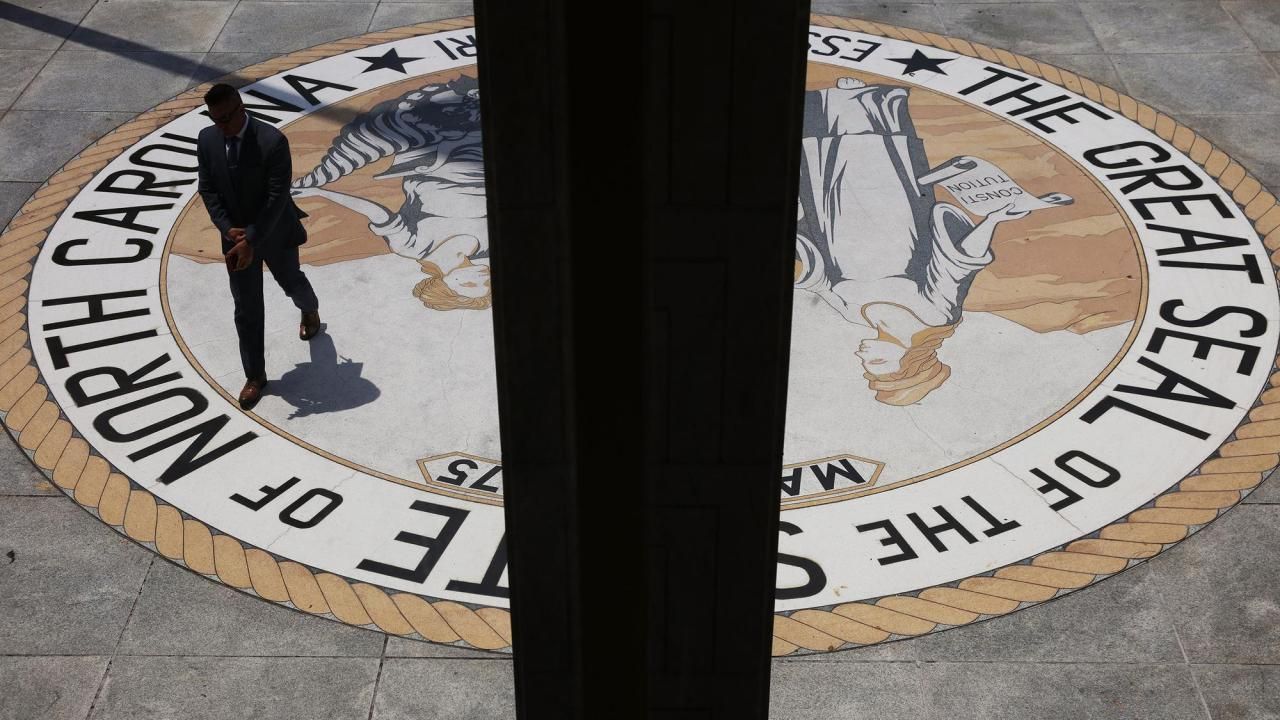Editorial: Legislative intimidation and veil of secrecy

CBC Editorial: Thursday, Nov. 16, 2023; editorial #8887
The following is the opinion of Capitol Broadcasting Company
North Carolinians should have the reasonable expectation thoughtful deliberation, not irrational impulse, is the modus operandi for those who represent them in the General Assembly.
However even the most cursory review of the work done in the closing hours of the recently recessed session of the legislature reveals reflex and even revenge -- not contemplation -- guides our legislative leaders.
Among the most egregious acts affronting transparency and openness in the conduct of public business and violating basic Constitutional rights, are expansive powers legislators granted themselves, former legislators and the General Assembly’s Joint Commission on Governmental Operations.
In much of North Carolina government, the public’s business transacted at taxpayer expense is considered to belong to the people and is a matter of open record and discussion.
But that is no longer the case when it comes to members, and former members, of the taxpayer-funded state legislature. With these sweeping changes, the records of North Carolina legislators no longer belong to the public. They now are considered the personal property of legislators – both while they’re in office and after they leave – even though it all was created and done in the service and expense of taxpayers. At legislators’ whims, they can decide what is, or is not, public and what may be retained as a matter of governmental record.
“A legislator, while in office or after leaving office, shall not be required to reveal or to consent to reveal any document, supporting document, drafting request, or information request made or received by that legislator while a legislator,” the new law dictates. Further, “the custodian of any General Assembly record shall determine, in the custodian's discretion, whether a record is a public record and whether to turn over to the Department of Natural and Cultural Resources, or retain, destroy, sell, loan, or otherwise dispose of.”
This new law grants legislators, when acting at the behest of the General Assembly’s Commission on Governmental Operations, unfettered rights of search and seizure – more expansive than state or federal law enforcement via the courts. State employees can be fired if they don’t keep inquiries from legislators secret. Some legislative leaders take the position that public employees can’t even talk to their agency’s lawyers about the appropriateness of how best to respond.
More so, the commission can demand documents, inspect facilities – including the private facilities and even private computers – of businesses that happen to be doing business with a public agency. There appears to be no limit to the scope of what can be demanded and seized nor any obligation to properly maintain that information. Failure of state workers or private citizens to comply with demands has been designated a “Class 2 misdemeanor” – up to 60 days in jail and a $1,000 fine.
So, legislators are now the law to themselves, without regard for North Carolina’s history or posterity, much less the United States and North Carolina constitutions or state statutes.
The U.S. Constitution’s Bill of Rights Fourth Amendment and State Constitution’s 19th and 20th Declaration of Rights are worthy of repeating here.
- U.S. Constitution: “The right of the people to be secure in their persons1earches and seizures, shall not be violated, and no Warrants shall issue, but upon probable cause, supported by Oath or affirmation, and particularly describing the place to be searched, and the persons or things to be seized.”
- N.C. Constitution: “No person shall be taken, imprisoned, or disseized of his freehold, liberties, or privileges, or outlawed, or exiled, or in any manner deprived of his life, liberty, or property, but by the law of the land. … General warrants, whereby any officer or other person may be commanded to search suspected places without evidence of the act committed, or to seize any person or persons not named, whose offense is not particularly described and supported by evidence, are dangerous to liberty and shall not be granted.”
Every North Carolinian should be alarmed at the extent to which a state legislature – without any public accountability or scrutiny -- not only can keep the government’s business hidden, but secretly demand information from state workers and private businesses and make it a crime if they fail to comply.
Our legislative leaders, many of whom are practicing lawyers, seem to have forgotten the admonition from the late U.S. Supreme Court Chief Justice Warren Burger: “People in an open society do not demand infallibility from their institutions, but it is difficult for them to accept what they are prohibited from observing.”
Keeping public business secret, unfettered search and seizures and making consulting co-workers and lawyers a crime only raises suspicions of the government that is supposed to serve citizens.
Later this month the legislature will convene and it should immediately repeal these ill-considered provisions.
Capitol Broadcasting Company's Opinion Section seeks a broad range of comments and letters to the editor. Our Comments beside each opinion column offer the opportunity to engage in a dialogue about this article. In addition, we invite you to write a letter to the editor about this or any other opinion articles. Here are some tips on submissions >> SUBMIT A LETTER TO THE EDITOR









